interview by Michael McCarthy
Singer/songwriter Justin Masters is one cool dude! He’s also a great friend. As someone who’s known him since the mid-90s or thereabouts, I am proud to know him and I’m even prouder that he’s releasing his music. Before And Way After is his second album, but rather than a follow-up to his first release, it’s something of a prequel, consisting of songs that he wrote in his teens and early 20s. The recordings were done more recently while he was working on his first album, Good Life Bad Liver, but the songs were penned during his youth. That being the case, it seems my bro is an old soul because songs like “Love Isn’t Kind To Strangers” and “A Rainy Night and A Cup of Tea” have mature and insightful lyrics that reveal a level of wisdom that most people would not have possessed at the age he was when he wrote them. Now, how would I describe his sound? Think early Rod Stewart meets Eddie Money meets Elvis Costello meets Elton John. With a touch of Bon Jovi. In other words, it’s good stuff! Listen away while you read the interview below and leave some comments if you could.
MM: Your new album is the second solo album you’ve released but it consists of songs that were written prior to the songs on your debut album. Why did you decide to focus on older songs?
JM: These were songs that I wrote in my late teens and early 20s. This is pre-internet. This is pre-moving to New York. This is pre-adulthood in many cases. I had bands that played these songs but, as you know, a guy that was influenced by ‘70s and ‘80s rock in 1996 might as well have been a homeless guy. He had no fucking place in the world. And so when I moved to New York, I just kind of left that guy behind and started over again. So, fast forward 20 years and we’re in the middle of this pandemic and nobody is leaving the house – nobody is supposed to leave the house at least – and these songs were talking to me again. They were saying, listen man, how fucking long are you going to keep us in the closet? [Both laugh] I was like, you know what, as far as I know, no one lives forever and no one gets any younger. So, here you go. I have the opportunity with the internet and everything to not have to have a record deal and all this and that. I finally get to put these songs out. And I’m really proud with how things came out. It really is a time capsule. I didn’t mix it in with any new songs. It’s purely the older songs from a younger man.
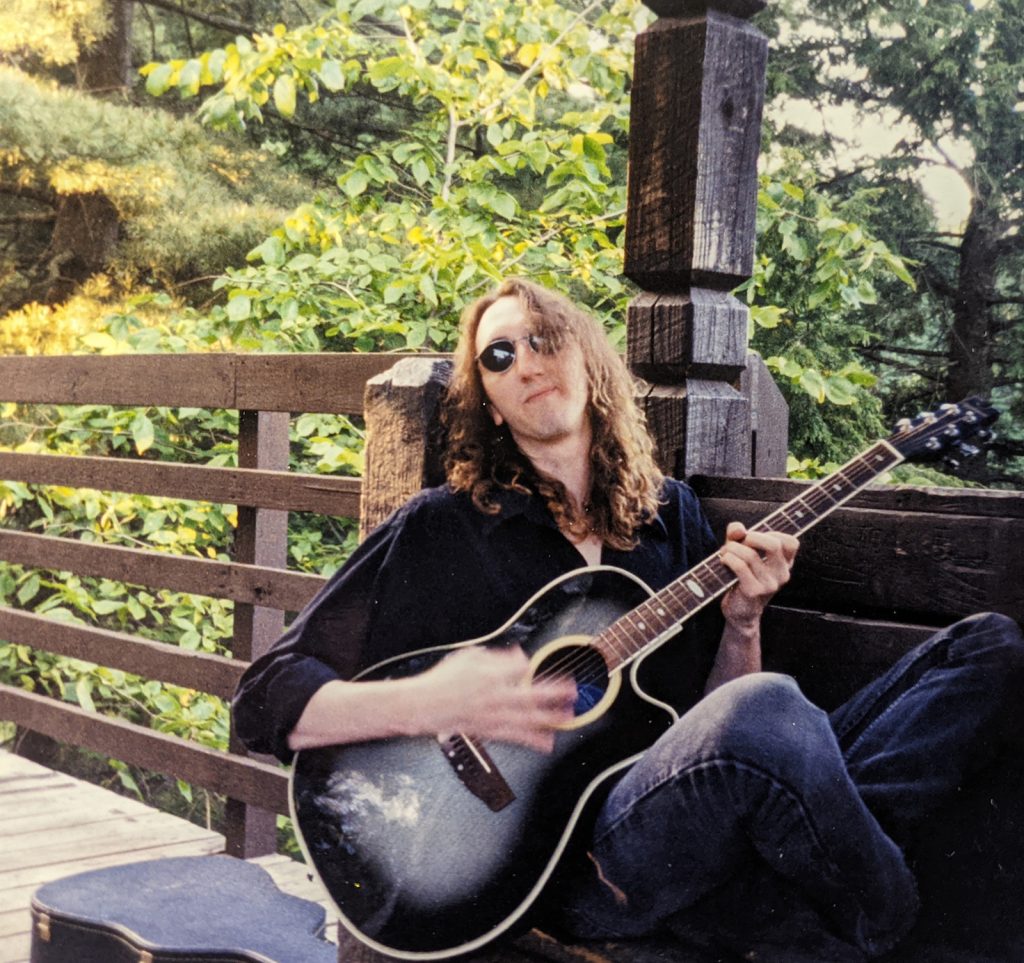
MM: Just out of curiosity, have you been having writer’s block at all? Or was it strictly wanting to get these songs recorded that drove you to work with older songs?
JM: Well, you actually nailed it right there, man. The God’s honest truth is I have not written a song in two years. I think a part of it was writer’s block. This isn’t nostalgic. This is unfinished business. I think a part of me said, you know what, the beast has to come out. I have to get this finished so I can move on. I think a part of it is that. More so than writer’s block. So, now it’s out. And I feel like I can move on.
MM: I’m trying to think of examples of other artists making albums of older songs like you’ve done. There was a Stevie Nicks album where she went and recorded a bunch of songs she’d demoed years ago but other than that the only thing I can think of is Enuff Z’Nuff releasing back catalog albums but in those cases the material was already recorded in the past and they just finally released them out of sequence. Do you know of any artists who’ve done what you’ve done, going back and recording older material?
JM: Well, the big one was Van Halen. The A Different Kind of Truth record. A lot of that stuff was ideas that they had in the early days. Their first demo. Springsteen and Bon Jovi both have box sets where they’ve remixed some of the songs but they were not new recordings. On the last Springsteen record, yeah, there are songs, so it does happen with songs, but not complete albums. Maybe I’m starting a trend here. Because the album cover is photos of a box of cassette demos but these are not old cassette demo recordings. That was just to show you these are older songs. They’re new recordings, though. I think I’m starting a trend here. [Laughs]
MM: Did you have any older songs that you couldn’t bring yourself to include here because they brought up bad memories?
JM: Yeah. There actually is one. It’s funny you mention that. A song called “We’re Supposed to Fall in Love” that was a complete rip-off of Eric Clapton’s “Tears in Heaven.” What’s funny is I knew that I didn’t want to put that song on this album but I stole a couple of lines from it and I used it in a new song so it’s gonna be there a little bit in a new song.
MM: So, you are working on new songs now then?
JM: Yeah, I mean, I haven’t done any in the past couple of years, but the Good Life Bad Liver record came out in ‘17 and from ‘17, ‘18 and ‘19, I have a ton of songs. They’re actually completed. Not quite an album yet, but it really continues where that album leaves off. This album, Before And Way After, this is not meant to be part two. This is like the prequel, if you will.
MM: Tell me some of your memories associated with songs on the new record.
JM: The hard rock songs in the middle are the oldest ones. Those I wrote as a teenager. “Highway’s Hotel” is the oldest song on here. 1995. What inspired it was the movie Leaving Las Vegas with Nicolas Cage. What I tell people is that this record is fictional tales of prostitutes and reclusive alcoholics and Good Life Bad Liver is non-fictional tales of prostitutes and alcoholics. [Both laugh]
I did have a band that was a hard rock band that did those songs. That was the long hair, t-shirt and ripped jeans, Skid Row meets Guns ‘N’ Roses. What would happen was I would love Poison and Bon Jovi but in the mid ‘90s it was really tough to find dudes that wanted to start a band who liked Poison and Bon Jovi. It was more like Ozzy and Metallica. So, I would always have to go toward the heavier side of things because of the musicians I had and the area where I lived. But that only lasted a couple of years and then I went into singer/songwriter mode.
So, all the other songs, like The Good Hard Life which I wrote in the bedroom of my first apartment and Keeping You in Mind are the more acoustic storytelling songs.
But music and the internet, Michael, everything changed. When Poison did that tour in 1999, it was the big reunion, nostalgia tour. I was like, fuck, I’m only 20 years old, man. I’m not ready to be nostalgic. [Laughs] I’m not nostalgic. I never went away. [Both laugh]
It’s funny because it’s really only a four or five year period of time where these songs were written. So, for me, it’s really funny going back here. This is a different frame of mind. Pre-internet, pre-digital, it was a different set of circumstances. This record could’ve came out in the ‘70s or ‘80s, man. This is not meant to be a digital, auto-tuned, 2021 record. This is meant to be for the people who are still hanging on who love Bob Seger and Bruce Springsteen and Tom Petty.
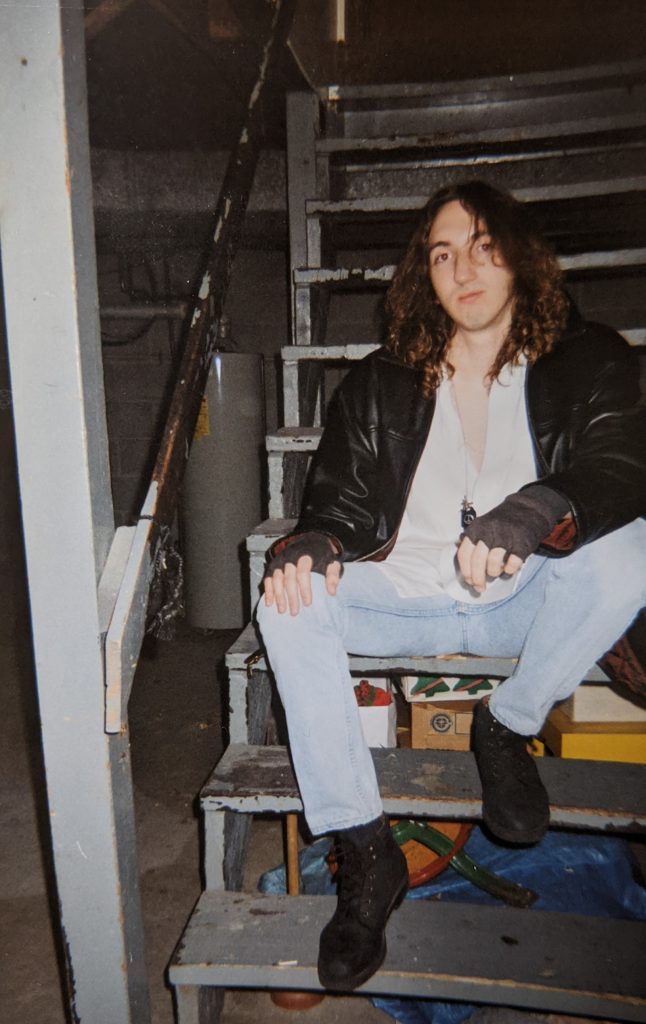
MM: Was it difficult to take some of these songs that were written when you were in heavy metal mode and transform them into songs that were more like ‘70s rock?
JM: That’s the way that I like to approach recording. I don’t want it to sound overly processed. I like hearing all instruments separately. I think the record has a good balance of acoustic pop rock and heavy rock, which is really what I would’ve wanted all along. But, at the time, it was really hard to find a band that wanted to do acoustic pop songs and hard rock songs. It was destined to be a solo record. You were never going to find a band that was going to let you do something like this. There’s a popular singer/songwriter who I really admire, and he’s a guy who made some records in the ‘80s that weren’t really bad but they weren’t true to himself and later on he made some records that were true to himself. I ran into him one time after a show and I was like, how do you do this, man? How do you get a band that follows your vision? And he was just like, Justin, you’ve just gotta pay people! [Laughs] Just get a drummer, a bass player, a rhythm guitar player, and say this is how we’re gonna do it, these are the songs and this is how it’s gonna be. I wish I knew that when I was younger. Because that’s the truth. You have to be a leader. If you don’t have a leader, how’s a band going to survive?
MM: You’ve gotta hire people who are just going to do what you want them to.
JM: Exactly. That’s how Springsteen got the nickname The Boss because he used to have to pay people. Even if you’re not a solo artist, if you have a band, you have to have a leader. There aren’t many bands where it’s 4 or 5 people who all have equal input. There’s usually one main writer.
But you come to a crossroad in your early 20s. Everyone does. You go, I’d rather take a shot and take a gamble than get a job and a steady paycheck and health insurance. And as you get older, it’s harder and harder to convince guys to not spend time with their kids and come out on the road instead.
MM: How much do you miss concerts?
JM: Oh, yeah, for sure. I went to City Winery in New York and I saw Southside Johnny acoustic and I saw a guy named Willie Nile.
MM: I like Willie Nile.
JM: Absolutely. I didn’t know who he was and someone wrote a review of my record comparing me to Willie Nile so I was like, I better check this guy out.
MM: Did you manage to get all of your best songs from your early days on this album or do you have another album’s worth of songs?
JM: I think this is it. I think this is the greatest hits of the early days. I have other songs where I might steal a line or two but at this point I think this is it for the early days. I’ve gotta look in the mirror and face the fact that I’m getting older and I have to move forward.
MM: When did you record the new album?
JM: I would say between 2010 and 2017, believe it or not. I was really just recording the new songs and as kind of an experiment I would record some of the old songs along the way. And then when I would play them for people, they would be like, bro, this is really good. I didn’t tell them the song was 20 years old. I would just say, listen to this. For myself, I had to find a way to put the collection together. The previous record was a collection of my New York songs and this record is a collection of my before New York songs.
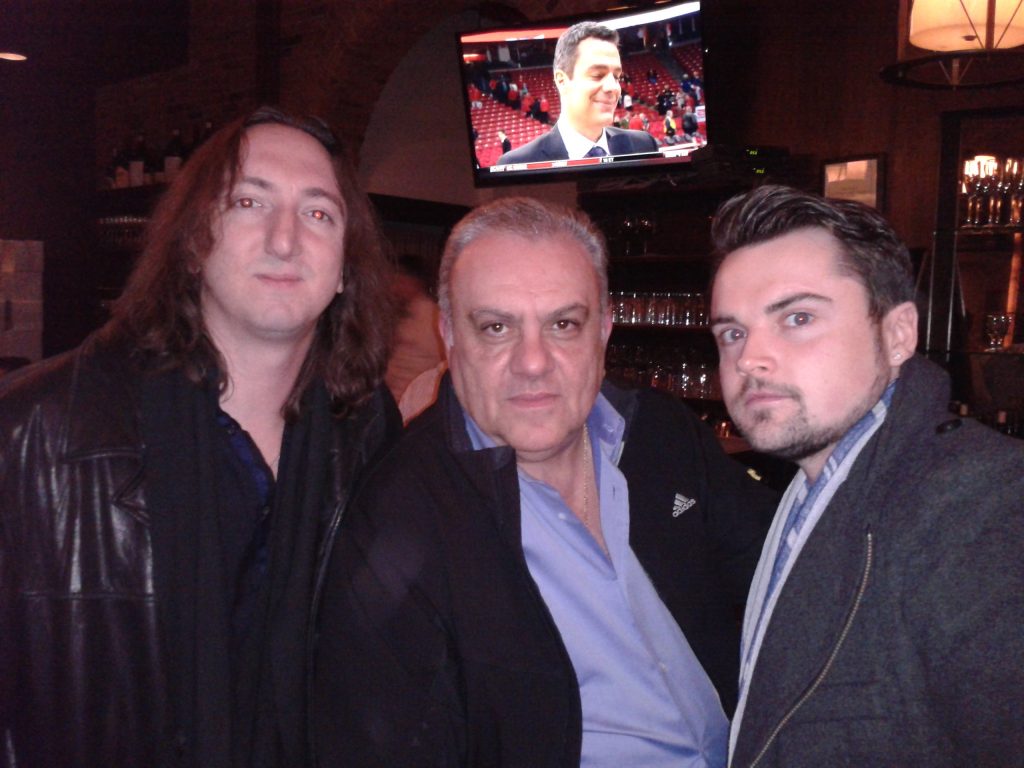
MM: So, they were all recorded over the years and you just compiled them into an album more recently?
JM: Exactly. The two albums were recorded at the same time over a period of years. When I put these together as a collection it was after the fact that I decided that was what I wanted to do. I could’ve just put out all 24 songs at the same time but I didn’t think that was gonna work.
MM: So have you been working with Zach Allen and Jason Harrison for a decade then?
JM: Not quite a decade but maybe five or six years.
With Zach, it was a beautiful thing. I had all of these songs lying around and I was at a show one day and I said this guy is the voice that I’ve been looking for. He fits the songs perfectly.
With Jason, we worked together in a previous band. He was the first guy I called and I’m thrilled that he enjoyed these songs! He’s a huge inspiration to me. Great guy.
MM: When you record, does it cost you a ton of money to record your songs or are you recording them yourself in a home studio or what?
JM: Thankfully, no. That’s one of the good things about the digital age. I have the home studio so I recorded all of my parts here as well as Zach. For the drums, they were
recorded in a studio because they take up so much space and everything with all the microphones and such. Other than that, everything was recorded in the home studio.
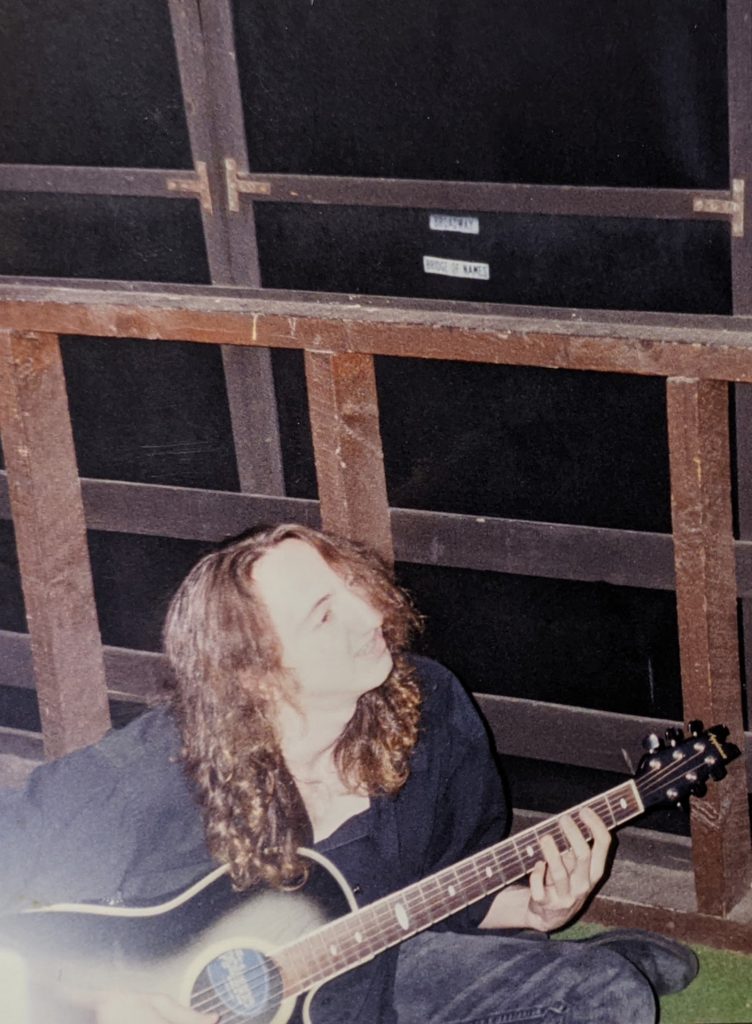
MM: Do you have any interest in doing any live shows with your material or are you strictly a studio guy these days?
JM: At the moment it’s purely a studio thing. Like I was saying, if I’d just pay people and put a band together. I don’t know what would’ve happened. I didn’t lose interest. I just got busy with life. I was in bands that ended badly. The singer of one band died. Another singer, they all moved. They all move away. And I’m not gonna blame it on the pandemic. It was well before that. And a lot of places I played previously were closed even pre-pandemic. It’s really fucking tough to put a band together and do it the right way.
MM: What are your expectations or hopes for this project? Are you hoping it’ll find an audience on Spotify or are you just kind of giving it to friends or what’s the plan?
JM: Yes to all of the above. I am going to work on licensing and publishing to see if we can get some of these songs in movies and television. I’d love to see that happen. For sure. It’s an internet world now. People don’t really buy CDs. People don’t have CD players or record players anymore. It’s a different kind of world. This is for people who still love rock ‘n’ roll music. For people who still love singer songwriter type of music. And it’s hard without touring. It’s going to be really difficult for it to find its audience. I would really like to make a mini-movie, you know?
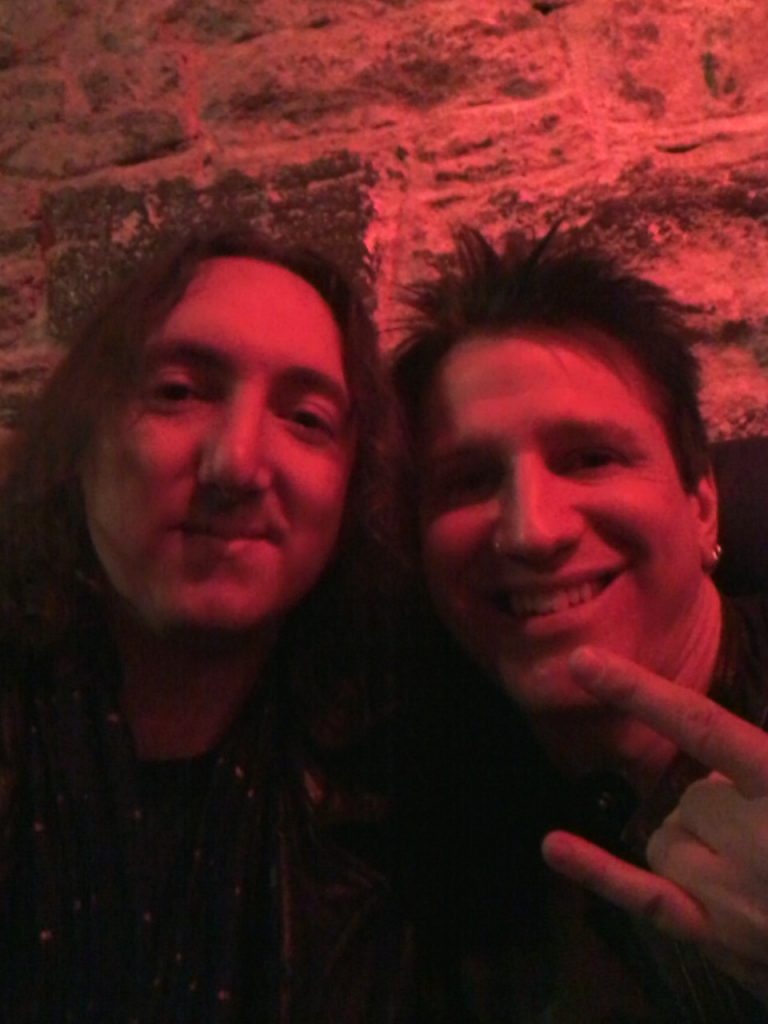
MM: Like that one Jon Bon Jovi did for Destination Anywhere?
JM: Yeah, that’s actually a pretty cool idea. I’m pretty sure he did that because he knew he wasn’t going to be touring off of it. But this is just fantasizing here. I don’t know if that would ever actually happen. But the record is there for people that want to listen to the music. At the very least, I’ve put out two records that I’m very proud of. So, for me, this was a personal success and a labor of love. I’m very proud of it.
MM: The cool thing is that you can keep making records at your leisure and just put them out when you want to and put out a body of work and you don’t have to go out on tour and slave away. If you approach it more as a hobby and you still have your full-time career, there’s less pressure if it doesn’t work out and you can just do it at your own pace.
JM: Yeah. The guitar is always there. There’s a guy named Mark Maron, who’s a comedian who also does podcasts, and he said that he, at an early age, decided it was going to be a hobby. So, the guitar is not like a source of pain for him. I can relate to that but sometimes it is a source of pain. Because I approached every song I ever wrote like it was going to be a big song and everybody was gonna love this.
MM: You should just keep making them at your leisure and putting them out on your own time.
JM: Yeah.
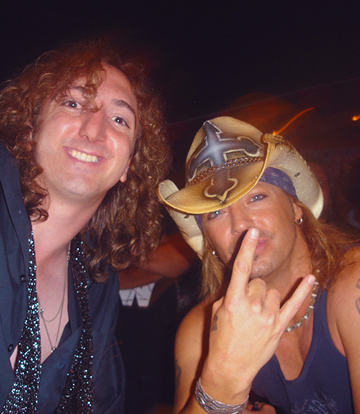
RANDOM QUESTIONS:
MM: What gives you nightmares these days?
JM: What gives me nightmares? I think at some point every man has his regrets and has things he wishes he could do over again. It doesn’t give me nightmares but it definitely keeps you awake at night. Sometimes you lie there and you just can’t get to sleep. You can’t shut it off. You just go over these things in your life. You either made a mistake or you just wish you could do it over. You wonder what would’ve happened. You think, oh, man, if I was at that crossroad and I went in another direction, if I went the other way, how would things be different? That’s what’s keeping me up at night. At the end of the day, man, you can spend your whole life fighting it or you can embrace it.
MM: I think a lot of that is typical mid-life crisis stuff that a lot of us are dealing with these days.
JM: That might be it, man. But, you know what? We’re gonna make it like one of our favorite movies, OK? We’re gonna play some good songs and we’re gonna be the heroes and we’re gonna get the girl in the end.
MM: Let’s see, what else do I have for questions here. Tell me about your best and worst experiences meeting your idols.
JM: Oh, good question, brother! I’ve gotta name names now, don’t I?
MM: I guess so.
JM: The only bad one was actor Tony Danza. I met him after a show. He was in a charity event. He was taking pictures and he was shaking hands. And there were two girls and me. We were the last three people there. And the girl is like, can you take our picture? And then I was like, can you take a picture of us after? And Tony just gets up and he walks away. I don’t know what the fuck happened. It was the one and only time I’ve had a bad experience meeting someone like that. He just got up and walked away. No picture for me. No handshake for me. No nothing. That’s the only bad experience I can think of.
MM: And what was his expression like as he was walking away? Did he look pissed off or arrogant or what?
JM: His exact words? I said, I’ll take your picture then you can take mine and he looked at me and he said, “They can. You can’t.” [Laughs] It was the weirdest fucking thing. It’s funny now, but at the time, I was like, what the fuck? Who’s the Boss? Taxi? What the fuck? [Both laugh] Tony! So, that was the one and only bad one.
I’ve had a lot of good experiences. I met Vince Neil at a bar after a show. I met Sebastian Bach and Bret Michaels at soundcheck. And L.A. Guns at soundcheck. Back in the early 2000s, they were filming Sex And The City and I met everybody from Sex And The City because they would always film around the area where I worked. I met Sylvester Stallone for God’s sake. That was very cool. That was an amazing experience. Because I actually knew somebody in the film industry who introduced me personally to him. So, I got to have a nice conversation with him.
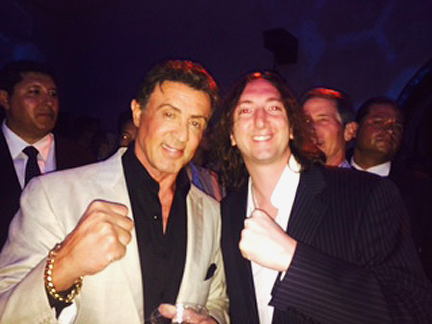
MM: Very cool. What did you talk to him about?
JM: Well, I figured, it was probably the one and only chance I was ever going to have to look Rocky Balboa in the eyes so I just told him how much Rocky meant to me growing up as a kid.
MM: What was the last album you bought that you got really, really into? Where you had to keep listening to the record from start to finish over and over again?
JM: As far as albums go, one that I missed that actually came out a few years ago is Chris Stapleton’s Traveler. The song “Tennessee Whiskey” was the big one, but I’d heard a couple other songs on the Yellowstone TV show and I was like, who’s this guy? And it said Chris Stapleton. So, I dug up that. It’s five or six years old now but the first time I heard the album was about a month ago. I listen to that one all the way through. That would be my answer. Traveler. The first song is “I’m Just A Traveler On This Earth.” That’s where my head is at these days. I’m a traveler on this earth and so are you, brother!
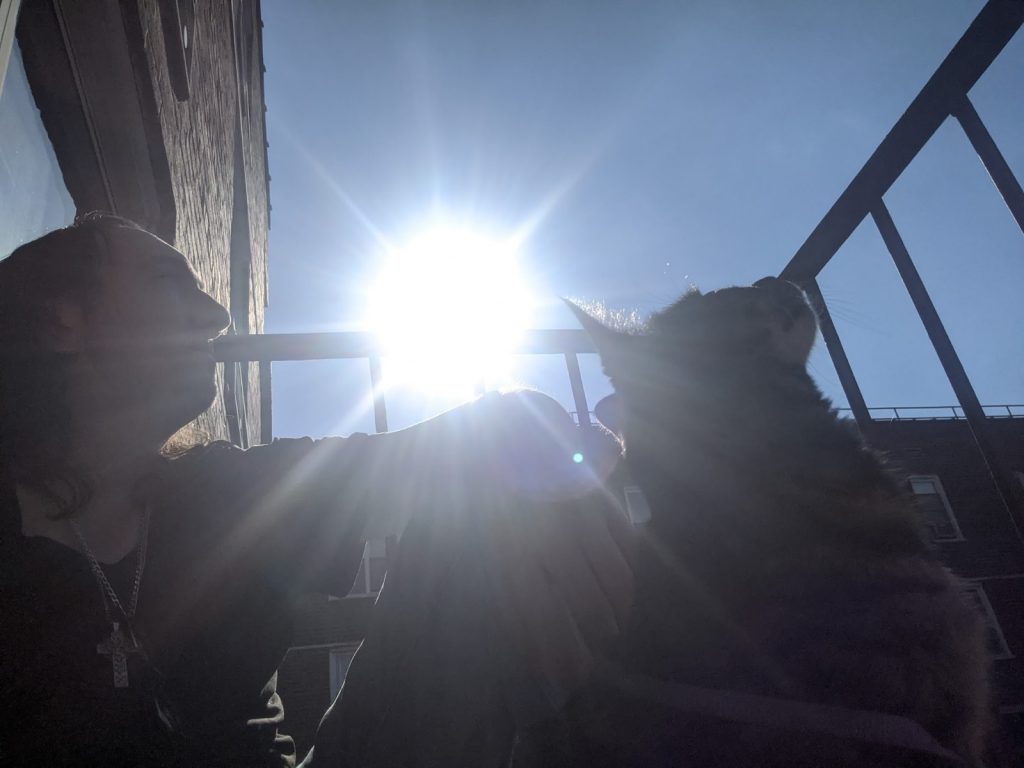
MM: What have you been doing to kill time during the pandemic when you’re not working?
JM: Well, I’ve got three bottles of whiskey in front of me right now. I’m not drinking them right now but they’re waiting for me.
I’m definitely cooking. Doing a lot of cooking. Cooking my own meals. Not going out to restaurants much.
I do hit the gym on the weekends. I’m gonna hit the gym right after this call, actually. I do it safe. I’ve still got the hand sanitizer and the mask. And I still like to keep my distance.
I have a cat. She was a little kitten. We got her in October of 2019 and she’s our light, man. So, drinking with the cat, brother.
Another thing I want to get out there, somebody gave me some really good advice. It’s good life advice, but it’s good pandemic advice in particular. He said to me, you know, how do you feel? I said, I feel OK. He said, do you feel as good as you felt yesterday? I said, yeah. And he said, then do that. If you go left then you straight and at the end of the day then you’re OK then tomorrow go left then go straight. Don’t change your routine. That was very good pandemic advice and in a way it was good life advice, too. People keep trying to gamble and take chances and sometimes you don’t have to. Sometimes it’s OK to be happy, man. Sometimes it’s OK to just be successful. Calm the fuck down. And I have a hard time doing that. I have a hard time going, you know what, I did OK. I’m always lying there going, fuck, I fucked that up, I should’ve done that different. I spend a lot of time doing that but I need to just be like, you’re doing OK, kid.

Leave a Reply to Jodi Cancel reply